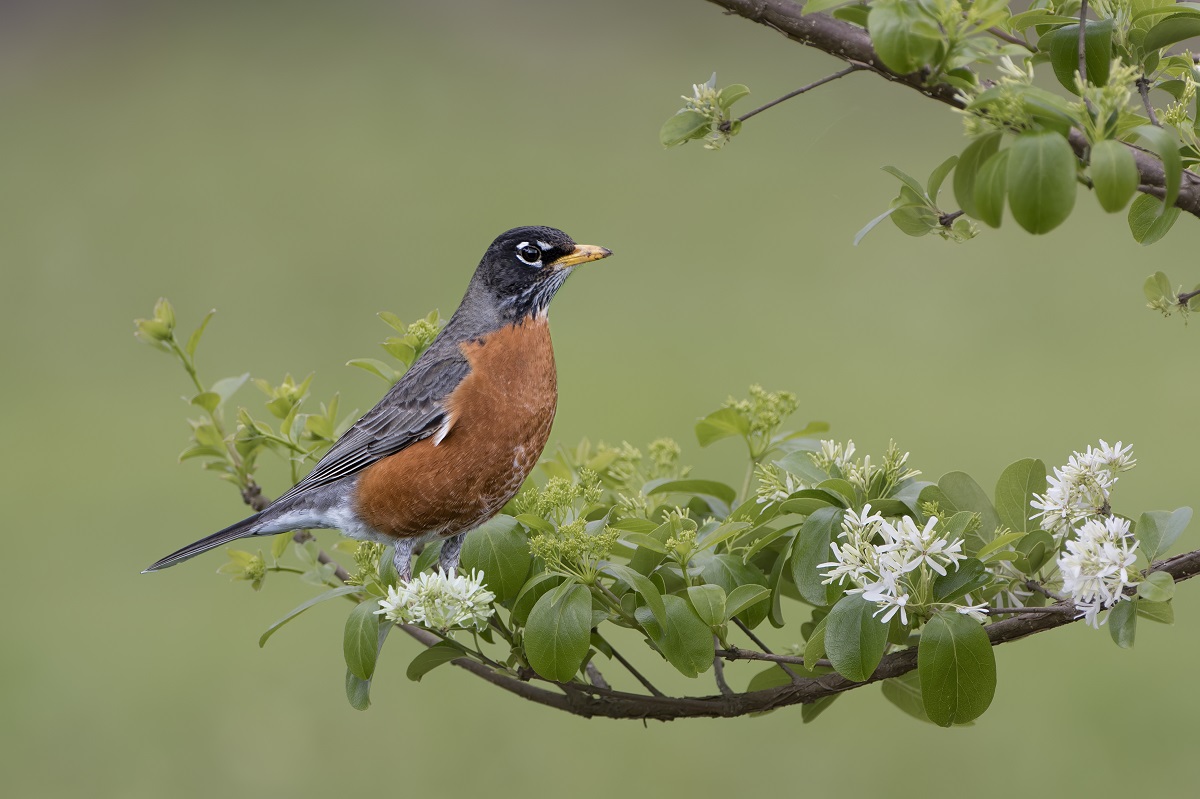Robin symbolism is linked to the arrival of spring and rebirth but also to death. The presence of robins in folklore means different things in different cultures, but it is still important to note that this bird has played an important role in Christian, Native American, Norse, and Celtic lore.
Robin songbirds have varied symbolic meanings among different cultures. Often, the bird is a symbol of good fortune. European Robins symbolize new beginnings, new opportunities, a positive attitude, good fortune, and growth within a person’s life.
Sighting the bird brings feelings of contentment, rejuvenation, warmth, and connection to higher realms of realities. The positive qualities attributed to robins make humans fond of these little birds.
The bird that plays a part in lore and legend was a European Robin rather than an American Robin. Though the little birds come from different species, they look similar, and each has a red breast. Many of the legends could apply to either species of this beloved bird, so the birds are interchangeable in these stories.
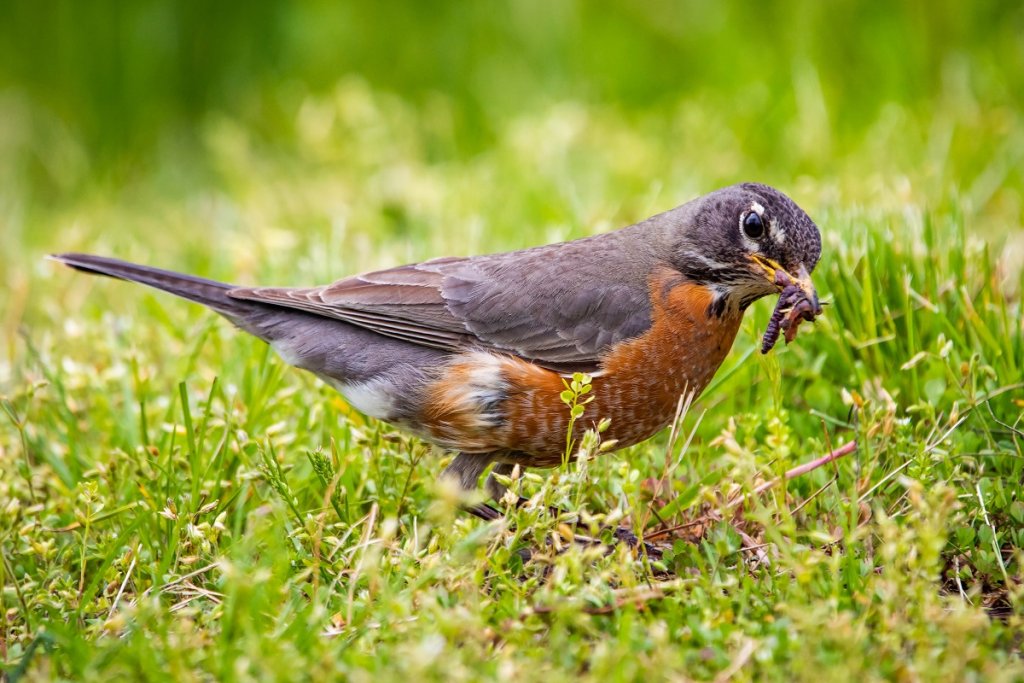
Robin Symbolism in Native American Culture
In Native American culture, all birds are links between God and man. Robins were seen as angelic messengers worthy of honor. The birds stay near the ground where humans settle, so they efficiently function as spirit guides. Their exalted stature spares them from being hunted for meat.
Robins also give insight into relationships, as evidenced by this tale. A Lenape woman knew her boyfriend was not right for her, but she was reluctant to break things off. As she procrastinated, a Robin kept knocking at her door. She knew the bird was trying to tell her something, but she ignored him.
The bird built a nest on deck in arbor vitae trees there, which most birds avoided. The Robin perished, and the woman realized that he had sacrificed themselves to tell her that her relationship with the boyfriend would destroy her.
In the video below, we rounded up 10 little known facts about Robins!
Robin Symbolism in Christianity
Christians understand and view the bird’s sighting as spiritual inclination and purpose.
The Robin figures in several Christian legends.
One goes like this. A plain brown Robin saw Jesus plodding the road to Calvary. To cheer him up, the plain brown bird came to sing to the man impaled with a crown of thorns. In the hope of alleviating his suffering, the bird pulled a thorn from Jesus’s temple and, in the process, pricked himself. A drop of blood fell on the Robin, turning his breast red.
Thorns can prick and choke Robins, so what the bird did was to endanger himself for another. His reward was the red breast that would become the bird’s signalizing characteristic.
Other versions have the Robin trying to cover Christ with leaves or the blood that stained the robin’s breast being from Jesus himself.
Another tale has a Robin present at the birth of Christ. As Mary tried to keep her baby warm on a chilly night, she noticed that the fire was going out. She asked the animals to blow on the embers to keep the fire going. But the donkey, sheep, cow, and horse slept on.
A little bird fluttering outside the stable heard Mary’s pleas and flew in. He flapped his little wings very hard like little bellows until the embers were bright red as he sang his beautiful song. As the embers died down, he flew to pick up fresh twigs to feed the fire. The sticks caught on fire, and a spark flew up to burn the little bird, who sang through the pain, The stable was soon warm again, and the Baby Jesus slept soundly.
Mary noticed his red breast and thanked him by saying, “From now on, let your red breast be a blessed reminder of your noble deed.”
To this day, the Robin’s red breast is a symbol of the love of Christmas.
American Robin in Celtic Symbolism
A Celtic story offers a more secular version of the story about the bird at Bethlehem.
In this case, a man and his son traveled through a cold night. They tried unsuccessfully to find shelter, but could only find a bush. The son lay down as the father built a fire. Eventually, the father was very sleepy, so he woke up the boy to watch the fire.
The boy tried hard to stay awake, but he was exhausted as he hadn’t slept while lying on the ground. He drifted off, and the fire died down.
A starving wolf crept toward the sleepy pair, thinking dinner was at hand. A little gray bird perched in the bush saw the whole chain of events and hoped out to fan the flames and chase the wolf away. The fire started up again, burning the bird. Yet he continued to fan the flames in spite of his pain until they were bright and warming.
Since that day, Robin have been known for their beautiful red breasts.
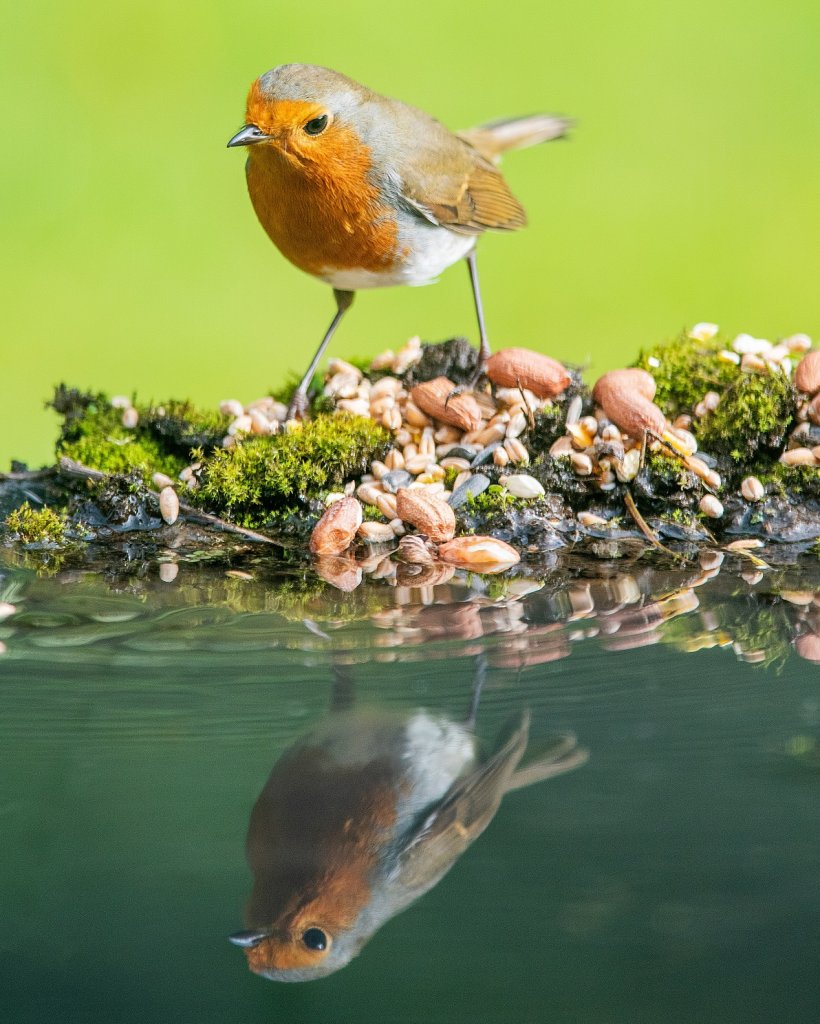
Many other legends arose among Celtic tribes, including these:
- The Irish and Celtic tribes shared venerated the Robin bird and believed that whoever kills a European Robin brings upon himself and his immediate family property or life losses.
- The Robin is viewed as a messenger, as noted in the phrase ‘When robins appear, loved ones are near, ‘People can take comfort that loved ones, even those who have died, are at peace and visiting them. This makes items with robins on them excellent sympathy memorial gifts.
- In Welch mythology, the Robin is called “brou-rhyddyn” or “scorched breast” because it burned its breast in the fires of purgatory while bringing water to the souls there.
- In Norse mythology, the Robin is the protector from storms and lightning, while in Celtic folklore, the robin is known as the Oak King of Summer, a symbol of light, fertility, and growth. He is in ongoing battle with the wren, the Holly King, ruler of winter, darkness, and death.
- The Irish believe that if you see the first Robin of the new season and wish for something, it will happen as long as you make your wish before the bird flies away. The spring Robin brings about good luck and prosperity.
This folklore resulted in the Robin being recognized at Britain’s (unofficial) National Bird in 1960 and again in 2015.
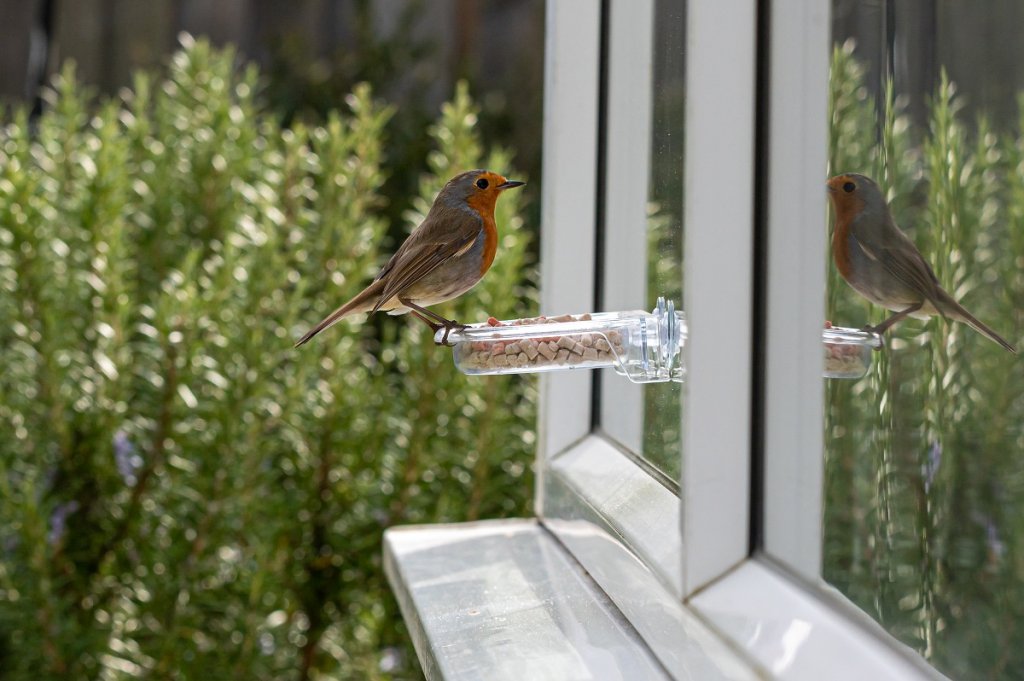
Robin Bird Meaning Across Many Cultures
1. Seeing an American Robin in Your Dream
The sight of Robin birds is believed to inform the dreamer of the other-dimension version of communication and connection. Robin dreams are believed to be a divine presentation to humankind.
Significantly, sighting a dead Robin bird is believed to signify danger, bad luck, or the loss or injury of a family member.
2. Encountering an American Robin
The morning chirrs and cluck sounds of the Robin signify good luck and fortune to its human neighbors. The birds are very friendly to human beings, and the daily chants are linked to daily blessings incurred by any listeners of the songs.
It is, however, believed in some cultures that encountering the front of the bird represents luck, whereas meeting its back end indicates doom and bad luck. The unlucky are advised to return home and restart the journey once again to cast off the evil spell.
Most people make a wish once they sight a Robin bird.
3. Robins As A Spirit Animal
Robin birds as a person’s spirit animal symbolize that the deep shared characters of the birds are manifested in the individual. If a person frequently sees Robins in their dreams or if seeing a Robin can pull a person from depression, the robin is their spirit animal.
The person is as gentle as the bird and proactive, a source of happiness to others even in gloomy conditions, open-minded and artistic, and possesses a kindly nature and gentle stature.
4. Robin as a Totem AnimalRobin totem animals symbolize the beginning of the spring season, the start of the planting season, and luck for the planters. Individuals with this totem animal can maintain a chilled persona, as the animal is calm and serene, but their personalities will get them noticed.
Such individuals should wear red. Robins use their red breasts to attract partners and assert dominance, so wearing red indicates leadership.
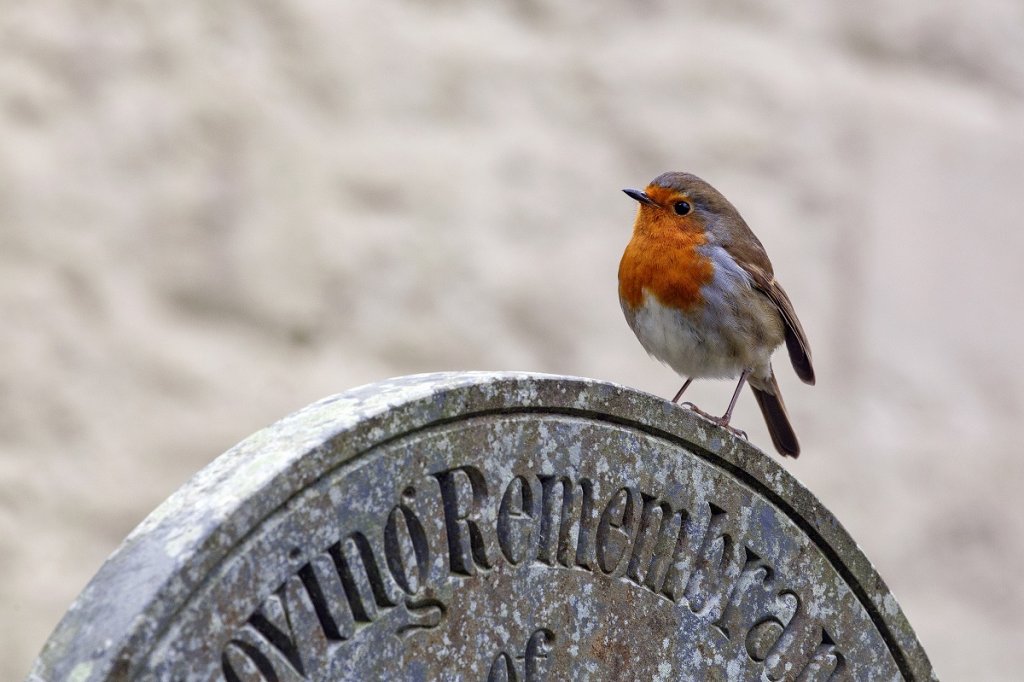
5. What Does It Mean When a Robin Visits You?
Visits from a Robin signify our connection and communication with a dead loved one who wishes to offer moral support in difficult moments of life. These birds indicate higher power connection and presence at the points of sight. It is common for individuals to make a wish at the sight of such birds during any circumstance.
Hearing a Robin’s song in your dreams promises new opportunities, while seeing them pull worms out of the ground or build nests indicates that your income will be sufficient to meet your needs.
The common phrase “When Robins appear, loved ones are near” symbolizes the birds’ spiritual significance of love and new life. This also means that safety for the family has been attained.
Seeing a flock of Robins in your yard in peak winter symbolizes impending danger. Just as a Robin came to help Jesus at his birth and death, the Robins indicate that divine help is on the way.
6. What Does a Robin Bird Mean Spiritually?
Robins are often seen as spirit guides for different cultures. These little birds bring spiritual symbolism of hope. Sighting a Robin bird gives spiritual meaning that you are not alone.
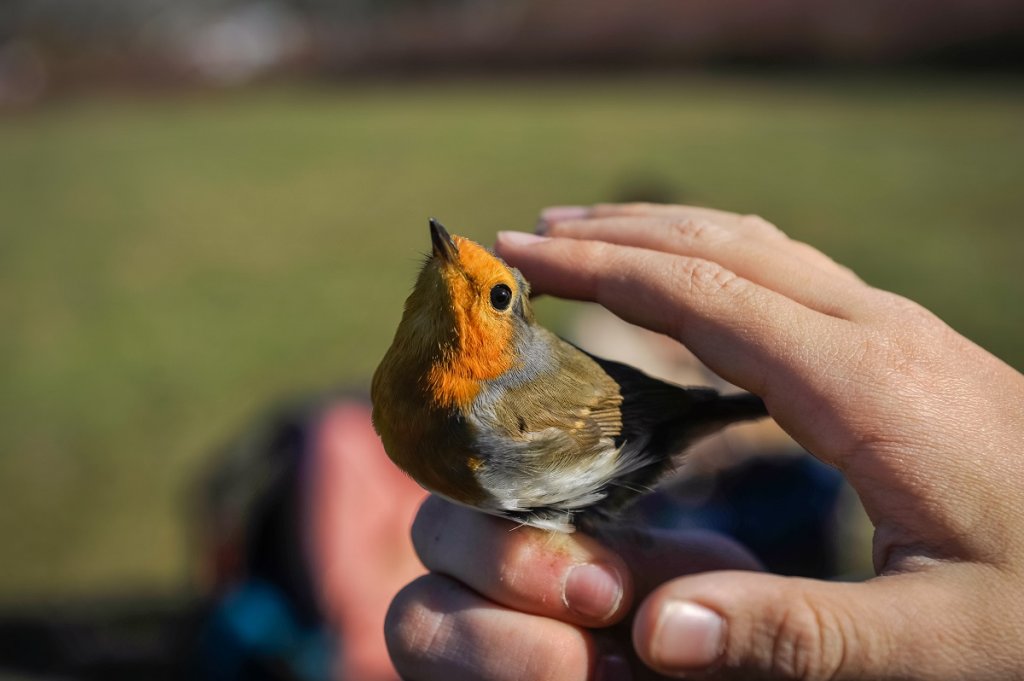
Why Do Robins Come Close to Humans?
The symbolism of the Robin is clear. Robins stand for desirable human traits: kindness, self-sacrifice, prosperity, industry, a positive attitude, cheerfulness, and hopefulness.
As spiritual messengers who need a close relationship with the receivers of their messages, it is fitting that Robins have a friendly relationship with humans, who they will let close to them and even eat out of their hands.

